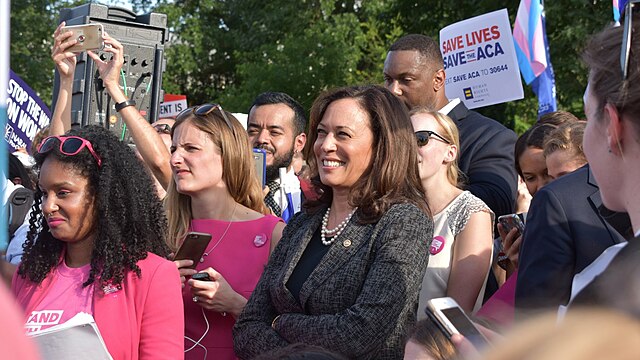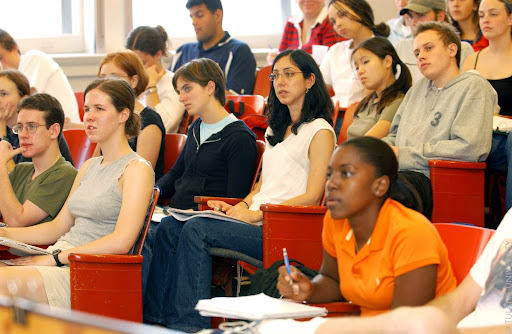We expected to experience a reverse-culture shock. What we didn’t expect was the sense of isolation and lack of interest about our specific study abroad experiences.
When Charlotte studied abroad in Botswana (Fall 2012) and Hallie studied in Mexico (Fall 2011), we were seeking experiences different from our own, a chance to broaden our horizons, and bring
these ideas back to the Guilford community.
The perplexing reality was the disinterest of the College in our returns. While the Study Abroad Department required us to participate in a pre-departure orientation with all of the students studying abroad in the fall, there were no programs arranged to help make the transition back to school manageable.
In this article, when discussing our experiences with Guilford Study Abroad, our use of “Guilford Affiliate” describes a program that does not have a Guilford faculty leader associated with it as opposed to “Guilford-led” which dictates having a faculty leader studying abroad with students.
The experiences that we had while abroad were dynamic, challenging and difficult to relay to people on campus who have not also studied abroad. However, this didn’t mean we wanted to withhold sharing stories about our experiences with peers and faculty on campus; we just felt there wasn’t a space for us to share openly.
Charlotte took part in a Public Health Program that included shadowing doctors and nurses at public clinics in Gaborone, Botswana. Guilford provides little in the way of discussions about global public health. As a result, Charlotte feels unable to apply much of the information gained from studying public health to campus as a whole.
Hallie studied community organizing and social movement building in Mexico with the Mexico Solidarity Network. With this program came an intensive politically radical education that had been previously somewhat-unknown to her. Upon returning, Hallie felt as though she didn’t have a space to talk about the new political ideals she had learned of; the ideas and structures that typical Guilford classes offered felt limiting. While Hallie had a Guilford Advisor overseeing the logistics of her program, that advisor did not travel with the students and thus could offer little in terms of a forum for processing experiences.
Guilford-led programs work to ensure that students are prepared for experiences abroad before traveling as well as prepared to return to school. The faculty members who lead programs through Guilford work diligently to help students process both of these transitions.
Don Smith, associate professor of physics, traveled with a group of ten students to Munich, Germany in the fall of 2012. Before, during and after the trip, the group spent time talking and discussing their semester. Before leaving, students were encouraged to find events happening in Munich that matched up with their current interests. During the semester, the group met each week to practice speaking German, as well as to discuss and process homestay living and plan weekend trips as a group. Upon returning, Smith invited the students to have dinner at his home and voice their concerns about transitioning back to life at Guilford.
Senior Lexie Arani studied abroad on both a Guilford Affiliate program to Peru and a Guilford Led program to China. “Coming back from China was much easier because I had shared experiences with Guilford people I studied abroad with,” said Arani. “We could have dinner and talk about how much we missed China. I was unable to do that with Peru because people were more hesitant to listen because of a lack of shared experience.”
While we willingly chose to study abroad with Guilford Affiliate programs, we did not intend to feel cast aside upon returning to school. The process of acclimating to student life after a semester away from Guilford poses certain challenges that are difficult to face alone and without support.
The Study Abroad Office should understand that studying abroad impacts students in ways that we as students cannot foresee. In order to cope with these experiences and stories that rest on our hearts and minds, we need support.
Finding support on campus has been extremely difficult for students returning from Guilford Affiliate programs. Old friends often do not know how to listen or ask appropriate questions, while professors seem too far removed for students to approach.
Who do we talk to? How do we deal with the pressures of academics, social situations and responsibilities on campus after returning from cultures with different paces of life and priorities?
We want the school to provide students with a forum for discussion and support about how to be a student again and what to do with all of our experiences now that we have changed, while the school environment has remained largely the same.






E. Power Biggs • Mar 31, 2013 at 12:18 pm
You both write very well. I noticed the mention of “feelings” and how each “felt” after returning from abroad and taking your places back on the Guilford campus. It is almost as if life went on without you in your absense. That too is a lesson that will serve you well after your Guilford years. Just over 40 years ago, I too studied abroad and loved it dearly! This was a highlight of my life. When I resumed my studies at Guilford, I took up my perch in Milner dorm and then almost immediately over to what we called ’68 dorm. My studies took place in Eastern Europe during the height of the Cold War. I had experiences alright and plenty to tell….but to virtually no one. I “let it out” bit by bit over the following months and then years in class and then throughout my career to now. Dealing and coping are part of education. Did I mention you both write well? I know you will find a way. Good luck!